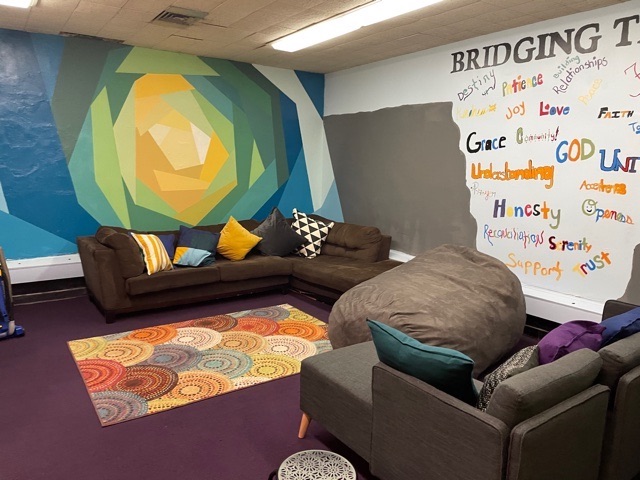By Courtney Smith
Poverty does not pause for a pandemic.
As we’ve seen over the past year, the coronavirus pandemic, with its profound impact on our daily life, has only exacerbated the many challenges faced by our Black communities, especially our youth. We already know that black Americans have had twice the death rate from Covid-19 of white Americans, as reported by Vox last October. Whether it’s hunger, homelessness, job loss, disruptions to schooling or access to basic living supplies, similar hazards apply.
Those closest to the problems need to be the ones driving the solutions. How do we support teens and young adults, the populations we serve, who have no fixed home, perhaps being shuffled each day among relatives or sharing a substandard room with a loose association of friends? Or others who live many nights in abandoned buildings or public spaces? A good night’s sleep, regular meals or showers are hard to come by.
Hazards lurk everywhere for those without a fixed address, including physical and sexual exploitation, lack of medical treatment or adequate nutrition and sanitation, and increased exposure to drugs and crime. Statistics show that 1 in 5 youth experiencing homelessness are victims of human trafficking.
Those closest to the problems need to be the ones driving the solutions.
How do we help keep black youths in pandemic-impacted schools, so they can complete their educations, finish high school and move on to a work career? Here in Michigan, we already know that pre-pandemic, nearly 36,000 public school students experienced homelessness over the course of the year. It is no secret that street-connected students have the highest dropout rate and lowest four-year graduation rate of any student group in our state.
We are determined to improve these outcomes.
With the stakes so high, our response has been to “double-down.” In our case, we had to leave our building, so we took our mission to the streets, to our consumers. We cleared out our food pantry and brought food packages to our youth and families. We purchased cell phones, routers, computers and tablets for them so they could stay connected and be more secure. We helped students who are struggling with online schooling, or threats of utility shutoffs. We provided emergency shelter, rental assistance, food, clothing and mental health support.
Interestingly, we are finding that the pandemic is bringing about shifts in job patterns. Some individuals dislocated from jobs during the pandemic are choosing not to return to them when they reopen. This is creating job opportunities for those in our community. We have also been able to help some families move into permanent housing. So in applying equal parts compassion, resourcefulness, grit and ingenuity, we are leaning into hope and making progress in extremely formidable times. We won’t give up.
Barriers to services must be reduced.
Clearly, Covid-19 and economic and social woes will be with us for some time, even as vaccines are rolled out and communities across America work to resolve issues of social justice, economic inequality and healthcare inequities. Even as vaccines become more available to our black communities, we must overcome historic distrust of vaccines and the federal government. It will take robust education and outreach to youth to build this needed trust. But it won’t happen overnight.
How can we improve outcomes for this vulnerable population of young people who do want to get an education, who want to live “normal” lives?
First, we must continue to improve coordination of services among groups like ours. Common issues that we must confront and solve include helping applicants meet residency and documentation requirements for support programs or to enroll in school, finding transportation to these activities, and being available at “non-working” hours to provide service for youth.
Next, we must be able to communicate with the young people we are serving, who may not have a working cell phone or cell service. How do we prevent service cutoffs or find a way to distribute prepaid cellular phones, possibly donated by the major carriers in our area? Furthermore, can we partner with hotels to provide emergency overnight respite when homeless shelters are full?
Can we expedite cash payments for young people, so they can purchase essential items during this uncertain time? For example, payment transfer apps would empower youth for self-care during a time when many of them already feel powerless.
Most importantly, do we respect the “ways of seeing” and full needs of the youth we are serving? Are we really listening to their inner concerns?
Working together, we can stretch existing resources to greater effect, as we avert tragedies and substantially improve outcomes for our at-risk youth and those experiencing homelessness. But we must remain equitable and flexible. There are many great stories to be told when we act as a community of shared vision and purpose.
• • •• • •
Ms Smith is founder and Chief Executive Officer of the Detroit Phoenix Center, a nonprofit organization based in Detroit MI that works to meet the critical, holistic and emergent needs of youth who are transitioning out of homelessness and poverty.














